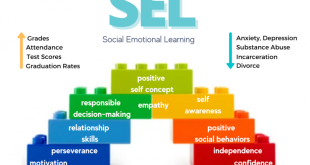The perception of teachers in society is a topic of considerable debate and discussion. Recent surveys and studies indicate that a significant number of educators feel that the public views them unfavorably. This sentiment raises important questions about the factors influencing public opinion and the implications for the teaching profession. The Teacher’s Perspective
The Teacher’s Perspective
1. Perceptions of Professionalism
Many teachers believe that the public does not fully appreciate the professionalism required in their roles. Despite their qualifications and dedication, teachers often feel undervalued and underappreciated. This lack of recognition can lead to feelings of frustration and disillusionment.
2. Media Representation
Media portrayals of teachers can significantly impact public perception. Negative portrayals, such as those that focus on issues like low performance or classroom misbehavior, can overshadow the positive contributions teachers make to society. As a result, many educators feel that the media does not accurately represent their hard work and commitment.
3. Challenges in the Classroom
Teachers face numerous challenges, including large class sizes, limited resources, and administrative pressures. These difficulties can affect their ability to provide quality education, which may contribute to negative public perceptions. Educators often feel that the public is unaware of the realities of their daily experiences.
Public Opinions on Education
1. Trust in Teachers
Surveys indicate that while many people trust teachers as professionals, there is often skepticism about their effectiveness. This skepticism can stem from broader concerns about the education system, such as standardized testing and curriculum decisions, rather than personal evaluations of individual teachers.
2. Parental Involvement
The level of parental involvement in education can also influence public perceptions of teachers. When parents are disengaged or critical, it can create a negative environment that affects how teachers are viewed. Educators often express the need for more support and collaboration from parents and the community.
3. Impact of Policies
Education policies and reforms can shape public perceptions of teachers. Teachers may feel that policies focusing on accountability and testing place undue pressure on them, leading to a perception that they are not performing well. This can affect how the public views their competence and effectiveness.
Implications for the Teaching Profession
1. Advocacy and Representation
To address unfavorable public views, educators and advocacy groups must work towards improving the representation of teachers in media and public discourse. Highlighting success stories and the positive impact of teachers on students and communities can help shift perceptions.
2. Community Engagement
Building strong relationships between teachers, parents, and the community is crucial. Engaging parents in their children’s education and fostering a collaborative environment can enhance support for teachers and improve public perceptions.
3. Professional Development
Investing in professional development and support for teachers can help them feel more confident and effective in their roles. When teachers are empowered and equipped to succeed, it can positively influence how they are viewed by the public. Conclusion
Conclusion
The belief among many teachers that public views of them are unfavorable highlights the need for a collective effort to reshape perceptions of the teaching profession. By addressing the challenges educators face, improving communication, and fostering community support, it is possible to enhance the public’s appreciation for the vital role teachers play in society. A more favorable view of teachers can lead to better support for education as a whole, ultimately benefiting students and communities.


